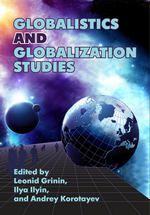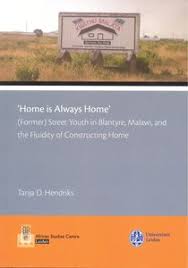“Trump Feels A Kinship With Authoritarian Leaders”: Richard Falk On Turmoil In The Middle East
Since Trump’s visit to the Middle East, the region is experiencing new forms of turmoil, with the boycott against Qatar by several Gulf countries and Egypt reflecting the manifestation of geopolitical rivalries encouraged by Trump’s support for dictatorial regimes in the region willing to join the US in the fight against terrorism. For the latest developments in the Middle East, Truthout spoke with Richard Falk, emeritus professor of international relations at Princeton University, who is now in the region for a series of public lectures.
C.J. Polychroniou: Richard, you are traveling and lecturing at the moment in the Middle East. How are the media in countries like Lebanon, Israel and Turkey treating Trump’s policies in the region, and what’s your reading of the mood on the ground among common folk?
Richard Falk: I have just arrived in Istanbul after spending several days in Beirut. While in Lebanon, in addition to giving a public lecture at the end of a cultural festival on the theme, “The rise of populism, Trumpism, and the decline of US leadership,” I had the opportunity to interact with a wide range of people. As far as Trump is concerned, there was virtual unanimity that he is worsening an already volatile situation in the region. His trip to Riyadh was viewed in Beirut as a stunning display of incompetence and bravado, topped off by succumbing to a Saudi/Israeli regional agenda focused on building a menacing anti-Iran coalition and misleading publicity surrounding a nominal commitment to join forces to combat ISIS (also known as Daesh). Trump was viewed as a leader who did not understand the region and was more interested in pushing destabilizing arms sales than in genuinely promoting stability and conflict resolution.
Why is Qatar singled out on terror when it is a well-known fact that Saudi Arabia has been a chief supporter of the most radical ideological version of Islam, and Turkey’s President Erdogan has been accused of aiding ISIS and other extremists against Kurds and Syrian President Bashar al-Assad?
The short answer is geopolitics. Saudi Arabia, like Israel, has a “special relationship” with the United States, meaning that in diplomatic practice, Washington adopts a subservient posture that includes seeing the world through a distorted optic provided by the Saudi monarchy. Trump did not initiate this American tendency to avert its eyes when it comes to the massive evidence of Saudi support for Islamic extremism, but he seems to be carrying further this form of geopolitical [ignorance].
When it comes to Turkey, the American attitude is ambivalent, regarding Turkey as a sufficiently important strategic partner via NATO, as well as the site of the important American Incirlik Air Base to justify looking the other way when it comes to indications of earlier Turkish support for ISIS in the context of implementing its anti-Assad Syrian policies. Of course, there is evidence of contradictions along similar lines with respect to pre-Trump US policies in Syria. All hands are dirty with regard to Syria. The Syrian people are continuing to pay a huge price for this mixture of internal struggle and a multilevel proxy war engaging regional and global actors.
Singling out Qatar is the strongest instance of the Saudi regional game. Saudi Arabia has long been bothered by the relative independence of Qatar in relation to a series of issues that have nothing to do with terrorism. These include the creation of Al Jazeera, a show of sympathy for the Arab Spring movements of 2011, asylum for the Muslim Brotherhood leadership after the Sisi coup of 2013, hosting Hamas leaders and tangible support for the Palestinian struggle — including aid to Gaza, and relatively friendly relations with Iran partly as a result of sharing a huge natural gas field.
Read more
Myths Of Globalization: Noam Chomsky And Ha-Joon Chang In Conversation
Since the late 1970s, the world’s economy and dominant nations have been marching to the tune of (neoliberal) globalization, whose impact and effects on average people’s livelihood and communities everywhere are generating great popular discontent, accompanied by a rising wave of nationalist and anti-elitist sentiments. But what exactly is driving globalization? And who really benefits from globalization? Are globalization and capitalism interwoven? How do we deal with the growing levels of inequality and massive economic insecurity? Should progressives and radicals rally behind the call for the introduction of a universal basic income? In the unique and exclusive interview below, two leading minds of our time, linguist and public intellectual Noam Chomsky and Cambridge University economist Ha-Joon Chang, share their views on these essential questions.
C. J. Polychroniou: Globalization is usually referred to as a process of interaction and integration among the economies and people of the world through international trade and foreign investment with the aid of information technology. Is globalization then simply a neutral, inevitable process of economic, social and technological interlinkages, or something of a more political nature in which state action produces global transformations (state-led globalization)?
Ha-Joon Chang: The biggest myth about globalization is that it is a process driven by technological progress. This has allowed the defenders of globalization to brand the critics as “modern Luddites” who are trying to turn back the clock against the relentless progress of science and technology.
However, if technology is what determines the degree of globalization, how can you explain that the world was far more globalized in the late 19th and the early 20th century than in the mid-20th century? During the first Liberal era, roughly between 1870 and 1914, we relied upon steamships and wired telegraphy, but the world economy was on almost all accounts more globalized than during the far less liberal period in the mid-20th century (roughly between 1945 and 1973), when we had all the technologies of transportation and communications that we have today, except for the internet and cellular phones, albeit in less efficient forms.
The reason why the world was much less globalized in the latter period is that, during the period, most countries imposed rather significant restrictions on the movements of goods, services, capital and people, and liberalized them only gradually. What is notable is that, despite [its] lower degree of globalization … this period is when capitalism has done the best: the fastest growth, the lowest degree of inequality, the highest degree of financial stability, and — in the case of the advanced capitalist economies — the lowest level of unemployment in the 250-year history of capitalism. This is why the period is often called “the Golden Age of Capitalism.”
Technology only sets the outer boundary of globalization — it was impossible for the world to reach a high degree of globalization with only sail ships. It is economic policy (or politics, if you like) that determines exactly how much globalization is achieved in what areas.
The current form of market-oriented and corporate-driven globalization is not the only — not to speak of being the best — possible form of globalization. A more equitable, more dynamic and more sustainable form of globalization is possible.
We know that globalization properly began in the 15th century, and that there have been different stages of globalization since, with each stage reflecting the underlying impact of imperial state power and of the transformations that were taking place in institutional forms, such as firms and the emergence of new technologies and communications. What distinguishes the current stage of globalization (1973-present) from previous ones?
Chang: The current stage of globalization is different from the previous ones in two important ways.
The first difference is that there is less open imperialism.
Before 1945, the advanced capitalist countries practised [overt] imperialism. They colonized weaker countries or imposed “unequal treaties” on them, which made them virtual colonies — for example, they occupied parts of territories through “leasing,” deprived them of the right to set tariffs, etc.
Since 1945, we have seen the emergence of a global system that rejects such naked imperialism. There has been a continuous process of de-colonialization and, once you get sovereignty, you became a member of the United Nations, which is based upon the principle of one-country-one-vote.
Read more
Challenges For Education In An International Setting
 Third Level Education is in many respects increasingly changing in the light of two general developments: internationalisation and globalisation on the one hand, marketisation and commodification on the other hand. Whereas the first is apparently taking up on an intrinsic value of education (‘universality of knowledge’), the second can be seen as opposing its values (‘knowledge cannot be bought and sold as any other good’). However, the discussion of this contribution shows that in reality we find that on the side of implementation big business has a standing that finds its way much easier to the stage of implementation.
Third Level Education is in many respects increasingly changing in the light of two general developments: internationalisation and globalisation on the one hand, marketisation and commodification on the other hand. Whereas the first is apparently taking up on an intrinsic value of education (‘universality of knowledge’), the second can be seen as opposing its values (‘knowledge cannot be bought and sold as any other good’). However, the discussion of this contribution shows that in reality we find that on the side of implementation big business has a standing that finds its way much easier to the stage of implementation.
Keywords: third level education, globalisation, internationalisation, marketisation, educational values, legitimation.
This article goes back to the work of the authors in Connection with a Presentation to Conference in Shanghai, October 2016. The conference theme was about higher education in an international setting in which presentation included a wide range of progresses made and challenges met within the joint-venture programmes between western universities and their Chinese counterparts.
See: https://youtu.be/6FJxTwHuotI
Third Level Education is increasingly concerned with distinct, though mutually influencing aspects – they can be aligned along two dimensions: the first spans between development of personality and defining ones’ place in professional terms; the other is about growing up in a new global scientific community. What had been for centuries a very privileged area for a few outstanding and lucky scholars, is becoming a field that is increasingly open for many, ready to engage at different levels, beginning with the bachelors degrees. Let us take Bangor College China as an example.
Bangor College China is a joint venture between Bangor University in the UK and the Central University of Forestry and Technology (CSUFT) in China. It was established with the approval of the Chinese Education Ministry in 2014 as an advanced model to facilitate the internationalization of Chinese higher education. A dedicated Bangor College China offers full degrees in China which is the first for a British university. It offers four programmes including BSc in Banking and Finance; BSc in Accounting and Finance; BSc in Electronic Engineering; and BSc in Forestry and Environment Management with more than 600 students in their first and second year studies. A team of dedicated and experienced staff of teaching and administration from both Bangor University and CSUFT were in interaction. Over the last two years Bangor University has invested heavily on Bangor College China. It is responsible for the quality of the programmes and ensures that the teaching standards, assessments and student experience are equivalent to those at the Bangor home campus.
– Although the running of the joint school in general goes smoothly with good intention from both universities in the UK and China, some major challenges lie ahead in the areas of the merger of different administrative cultures; the search for professional standards; the work towards a common professional understanding, making reference to wealth of different traditions; and the development of new ways learning.
– Remarkable new opportunities go hand in hand with grave challenges: as much as we find the strive for excellence as major field of competitive concern, at the very same time we find the incredible opportunities for smaller projects, such as Bangor College China, is an example that locates the challenge of development of personality and defining ones’ place in professional terms in the context of a collaborative setting globally.
Defining the Field
International education – as matter of ranking and also cooperation and as matter of the excitement to explore new shores – experiences a kind of hype, easily overlooking the inherent contradiction. But can we really speak of an inherent contradiction? If we take things at the level of appearance, we find, of course, – and very valid – the feature of cutthroat competition – the winner gets all, at least the cherries of qualified staff and students and also the relevant resources.[i]
Although this is undeniably a strong force, we can take as well a more optimistic view – optimistic for those that are not in any relevant top-league, and – importantly – who are actually not seriously striving to gain entrance. Though it is often said that we do stand on the shoulders of giants, we also – and increasingly – are part of an overall team game – not least looking at the ancient Western cultures, claimed to be the crèche of today’s enlightened cultures in the east and west, we know that the understanding was very much one of discourse – a discourse between ‘experts’ and between ‘experts’ and ‘pupils’. The term ‘scholar’, referring to the learned person and the student alike, may give a hint, as does the term ‘scientific community’ – and it is worthwhile to mention in parenthesis that these terms are paradoxically loosing meaning at a time when scientific work can only be imagined as part of an undertaking that is social in terms of time and content – without denying the greatness, for instance of Isaac Newton. It did not require much more than a well-studied individual mind and the observation of an apple falling from the tree to find out about the law of gravity. However, using this law as crucial basic knowledge to the undertaking of flying to the moon or exploring other planets, requires the genius of many people collaborating, as also the academic labour is divided and a huge amount of resources. And let us be honest, and a bit German, by referring to the poet Goethe who states in his masterpiece:
Two souls alas! are dwelling in my breast;
And each is fain to leave its brother.
The one, fast clinging, to the world adheres
With clutching organs, in love’s sturdy lust;
The other strongly lifts itself from dust
To yonder high, ancestral spheres
(von Goethe 1808).
Read more
Colonial Film Database ~ Moving Images of the British Empire
 Welcome to Colonial Film: Moving Images of the British Empire. This website holds detailed information on over 6000 films showing images of life in the British colonies. Over 150 films are available for viewing online. You can search or browse for films by country, date, topic, or keyword. Over 350 of the most important films in the catalogue are presented with extensive critical notes written by our academic research team.
Welcome to Colonial Film: Moving Images of the British Empire. This website holds detailed information on over 6000 films showing images of life in the British colonies. Over 150 films are available for viewing online. You can search or browse for films by country, date, topic, or keyword. Over 350 of the most important films in the catalogue are presented with extensive critical notes written by our academic research team.
The Colonial Film project united universities (Birkbeck and University College London) and archives (British Film Institute, Imperial War Museum and the British Empire and Commonwealth Museum) to create a new catalogue of films relating to the British Empire. The ambition of this website is to allow both colonizers and colonized to understand better the truths of Empire.
Take a look: http://www.colonialfilm.org.uk/home
The Single-Payer Breakthrough In California: Robert Pollin On The Economics Of Universal Care
 On June 1, California senators voted to replace private health insurance with a single-payer system. Senate Bill 562, by State Senators Ricardo Lara and Toni Atkins, passed 23-14, and will now advance to the Assembly where the measure would require two-thirds vote in both chambers to become law.
On June 1, California senators voted to replace private health insurance with a single-payer system. Senate Bill 562, by State Senators Ricardo Lara and Toni Atkins, passed 23-14, and will now advance to the Assembly where the measure would require two-thirds vote in both chambers to become law.
Clearly, the June 1 vote by California senators is an initial step toward the adoption of a government-run universal health care system, but it already signifies a major political victory for progressives in this country, who have long advocated for a publicly funded health care system. The proposed measure, i.e., SB-562, was backed by an economic analysis undertaken by the Political Economy Research Institute (PERI) of the University of Massachusetts at Amherst. Its lead author, Distinguished Professor of Economics and Co-Director of PERI Robert Pollin, introduced the study at a capitol news conference a day before the State Senate vote — and it was undeniably instrumental in the passing of SB-562. Now that the first hurdle toward the replacement of private health insurance in California with government-run health care has been cleared, we asked Pollin to weigh in on the bill’s financial implications and its future. In the exclusive interview below, Robert Pollin discusses why a transition to a truly universal health care system makes economic sense for the state of California — and the country.
C. J. Polychroniou: Bob, could you start by briefly outlining the key features of SB-562 and tell us how you and PERI got involved in providing the financial analysis for the proposed measure?
Robert Pollin: SB-562, in its essentials, proposes a classic single-payer, or Medicare-for-All, health care system for the State of California. That means basically two things: First, everyone in California is guaranteed access to decent health care, regardless of their income level, where they work or whether they have a job at all. This principle is quite straightforward. It is the equivalent to the principle on which we operate public schools in the US. It is also the principle that operates for Medicare right now, covering everyone 65 and over. And second, [the bill provides that] private insurance companies are no longer permitted to offer health care coverage for residents of California.
The way I got involved is also simple: I was asked to get involved by RoseAnn DeMoro, who is the longtime executive director of the California Nurses Association and National Nurses United. In my view, the nurses’ union is the most progressive and innovative union in the US and probably the single most effective force for good in US mainstream politics today. So, when they asked me to get involved, it would have been very hard to say “no.” On top of that, I have worked with them for years now, on the issue of taxing Wall Street — i.e., the “Robin Hood Tax.” In all of my previous work with them, they have had total respect for my independence as a researcher. That is critical. They knew that, if I took this commission, I was doing it to produce a serious piece of analytic work. I was not about to just do cheerleading for them.
One of the major objections launched against SB-562 was that it would be financially unsustainable. However, the study that you and your colleagues undertook says providing universal coverage would increase overall system costs by about 10 percent, but the single-payer system could produce savings of about 18 percent. Can you elaborate a bit on this?
At present, the total cost of health care in California — including everything — is roughly $370 billion. But even with this level of spending — about 14 percent of total GDP in California — there is still about 7.5 percent of California’s population (2.7 million people) who have no health insurance, and another 36 percent of the population (about 12 million people) who are underinsured, i.e., they have limited access to health care because their insurance premiums, deductibles and/or co-payments are extremely high relative to their income levels. My co-authors James Heintz, Peter Arno and Jeannette Wicks-Lim and I estimated that to provide good health care to all those who are presently either uninsured or underinsured would raise total system costs to about $400 billion, assuming that the health care system remained intact otherwise. We then estimated that, with the single-payer system, we could extract about 18 percent in total cost savings. We get those savings through reducing excessive administration, controlling pharmaceutical prices, fixing fees for doctors and hospitals at Medicare rates, and reducing the high degree of waste in the present system of service provision (such as doctors ordering excessive procedures).
Through these cost-control measures, we estimate that the single-payer system can provide everyone in California with decent health care at a total cost of $330 billion, i.e., a savings of about 8 percent relative to the current system while still delivering universal coverage.
Read more
Tanja D. Hendriks ~ ‘Home Is Always Home’. (Former) Street Youth In Blantyre, Malawi, And The Fluidity Of Constructing Home
 For many Malawians the concept of home is strongly associated with the rural areas and one’s (supposedly rural) place of birth. This ‘grand narrative about home’, though often reiterated, doesn’t necessarily depict lived reality. Malawi’s history of movement and labor migration coupled with contemporary rapid urbanization makes that the amount of people whose lives do not fit this grand narrative, is increasing fast.
For many Malawians the concept of home is strongly associated with the rural areas and one’s (supposedly rural) place of birth. This ‘grand narrative about home’, though often reiterated, doesn’t necessarily depict lived reality. Malawi’s history of movement and labor migration coupled with contemporary rapid urbanization makes that the amount of people whose lives do not fit this grand narrative, is increasing fast.
In the current context of extreme poverty, destitution and devastation – the latter due to the flash floods of January 2015 – slum areas in Blantyre city are growing and so is the number of street children and youth. Some of them are taken in by organizations such as the Samaritan Trust; a street children shelter. This program aims at taking street youth home by ‘reintegrating’ them in their (rural) communities. When asked, the majority of (former) street youth adhere to the grand narrative and state their home to be in a rural village. Yet at the same time, this home is a place they intentionally left and do not wish to (currently) return to. Hence they are generally depicted as ‘homeless’. I wondered: how do (former) street youth in Blantyre, Malawi, engage with ‘the grand narrative about home’ in trying to imagine their ‘becoming at home’ in the city?
My thesis departs from the idea that (the search for) home is an integral part of the human condition. During eight months of ethnographic fieldwork in Blantyre, Malawi, I used qualitative methods – mainly interviews and participant observation – to come to an understanding of the meaning of home for (former) street youth. Some of them, the street girls, currently reside at Samaritan Trust and the former street youth are boys who formerly resided there. Their home-making practices in relation to a marginalized socio-economic position in an overall challenging economic context point towards more fluid and diverse constructions of home that exist alongside the grand narrative without rendering it obsolete. Under pressure, (former) street youth paradoxically attempt to solidify home – even though home remains fluid in practice.
These attempts assist in coping with life in liquid modernity while they are at the same time fraught with contradictions, especially when these solidifications are themselves solidified in policies. These policies subsequently hamper (former) street youth’s becoming at home in town by following the grand narrative and thus confining their homes to rural areas. I conclude that home can best be seen as a fluid field of tensions (re)created in the everyday, thus leaving space for both (former) street youth’s roots and routes. An alternative way in which (former) street youth try to become at home in the city is by searching for a romantic partner to co-construct this (future) home.
This book is based on Tanja D. Hendriks’ Master’s thesis ‘’Home is Always Home’: (Former) Street Youth in Blantyre, Malawi, and the Fluidity of Constructing Home’, winner of the African Studies Centre Leiden’s 2016 Africa Thesis Award. This annual award for Master’s students encourages student research and writing on Africa and promotes the study of African cultures and societies.
Read the book: http://www.ascleiden.nl/home-always-home-former-street-youth-blantyre-malawi-and-fluidity-constructing-home




